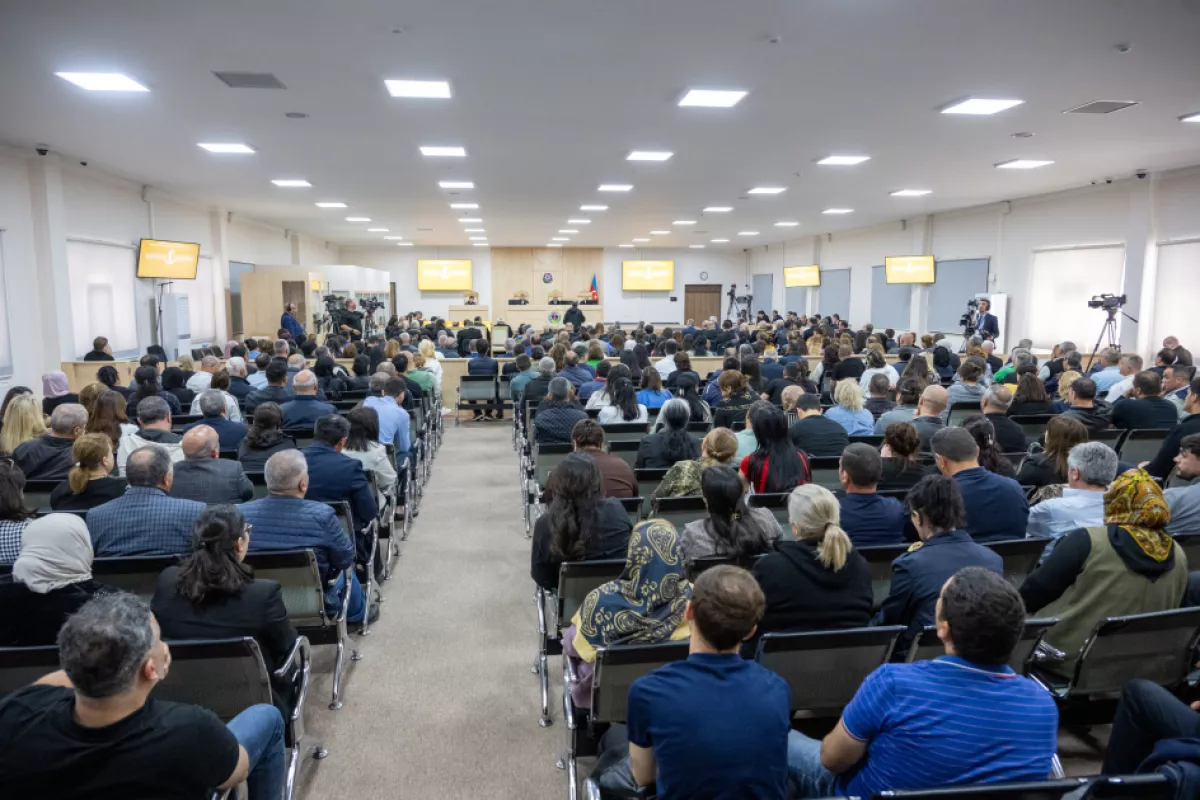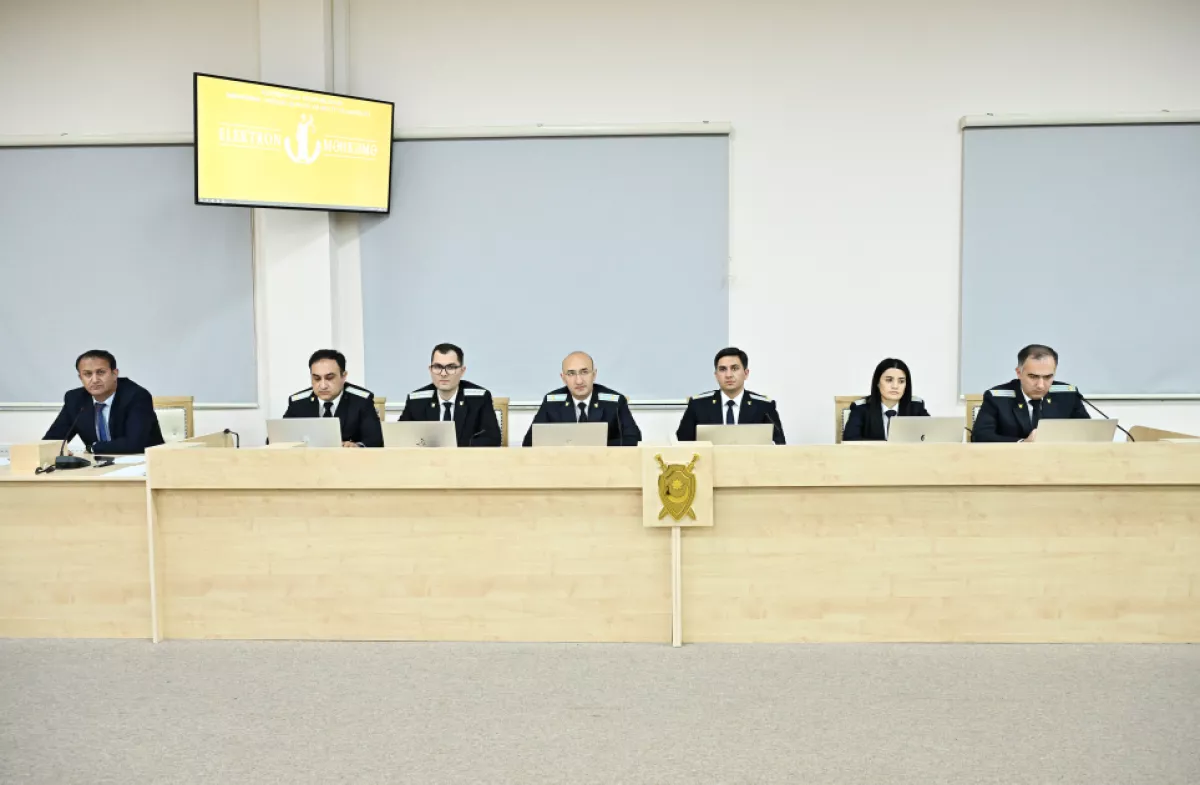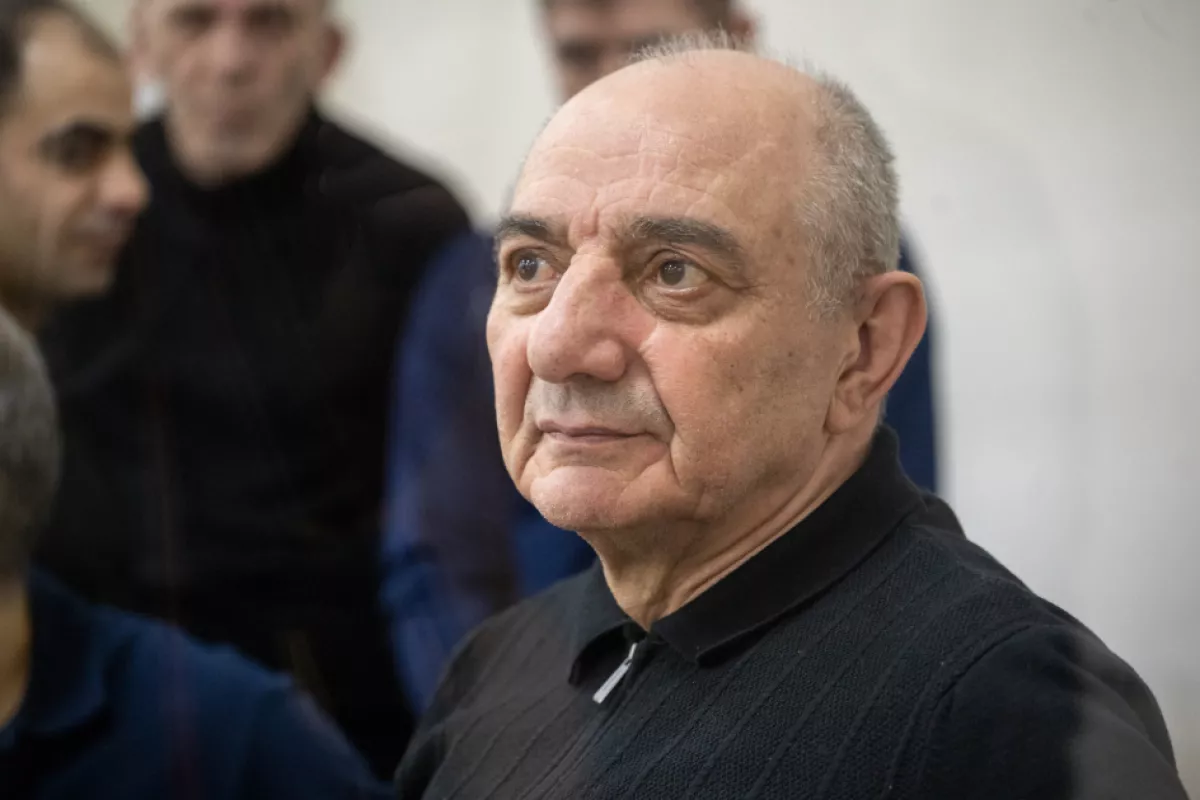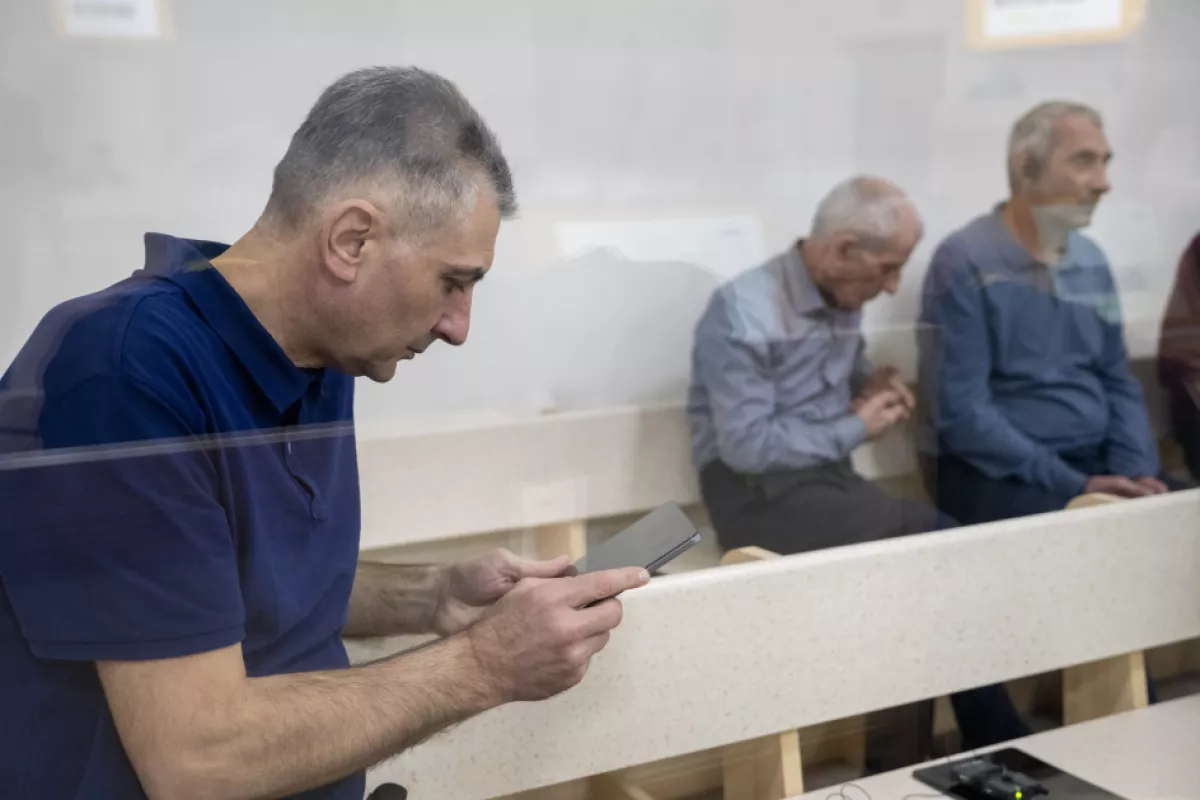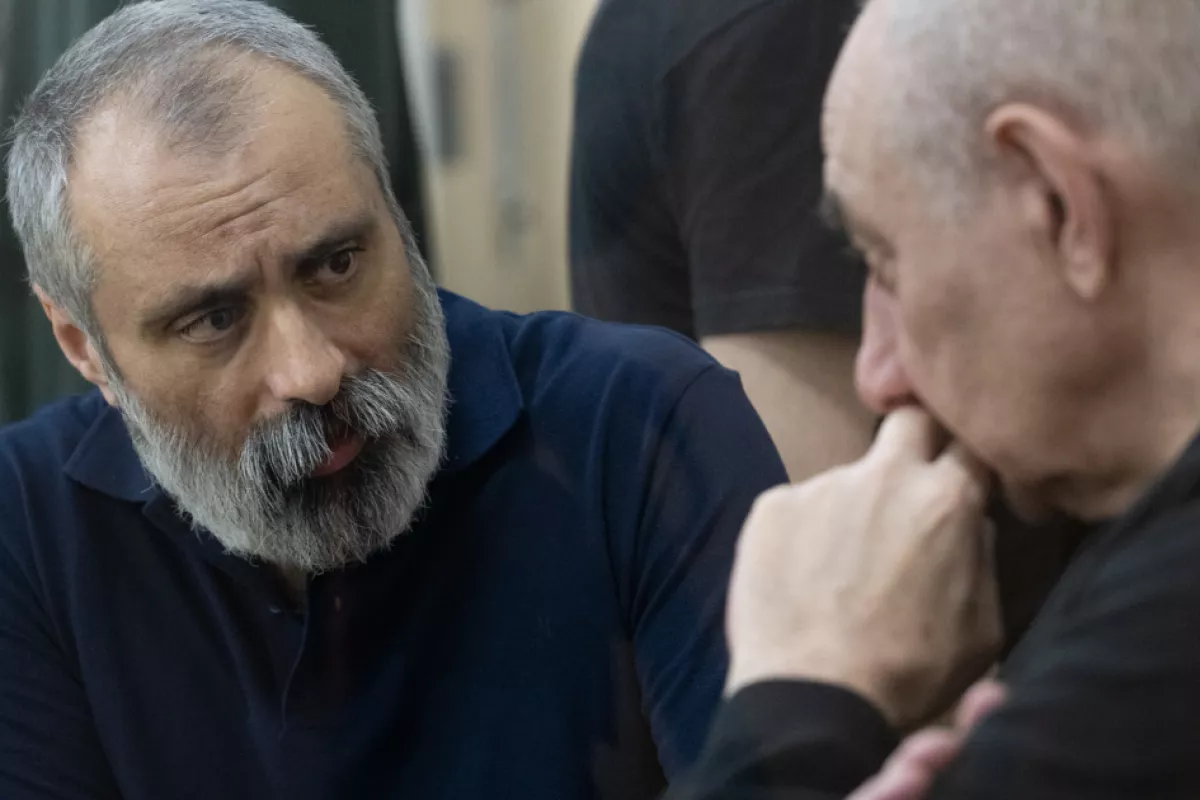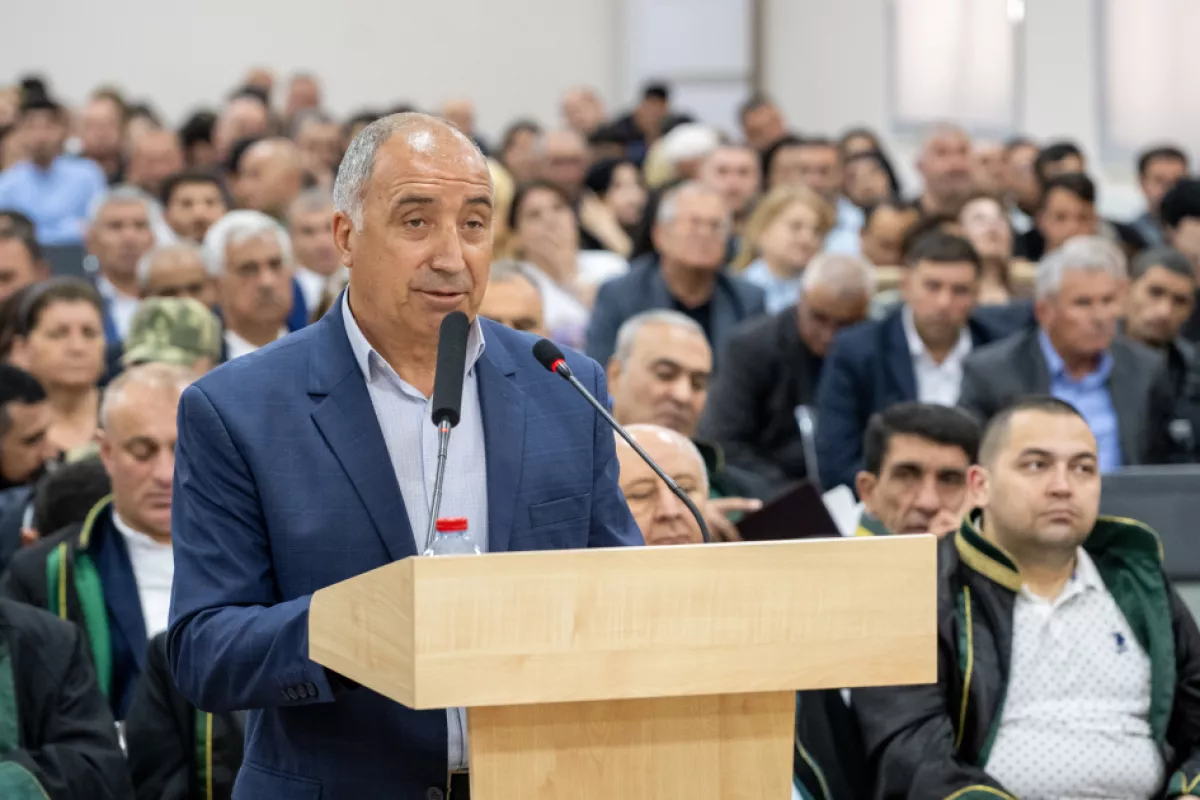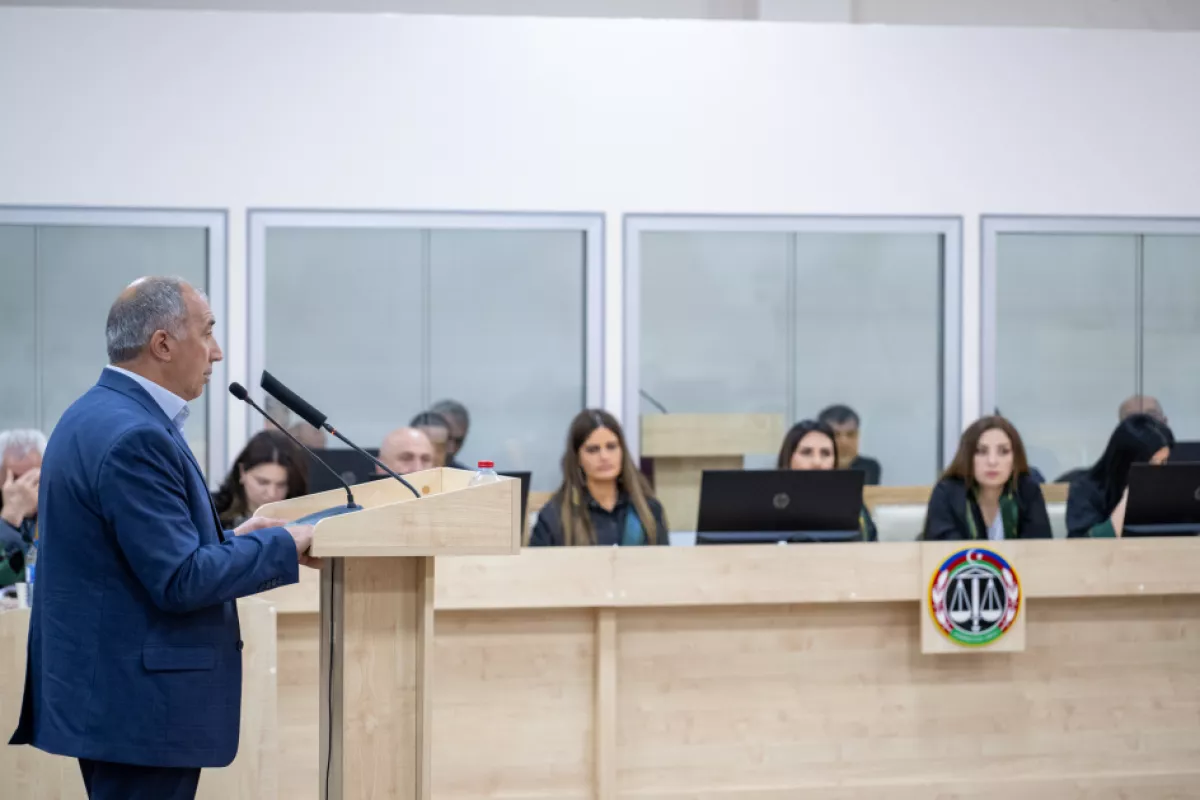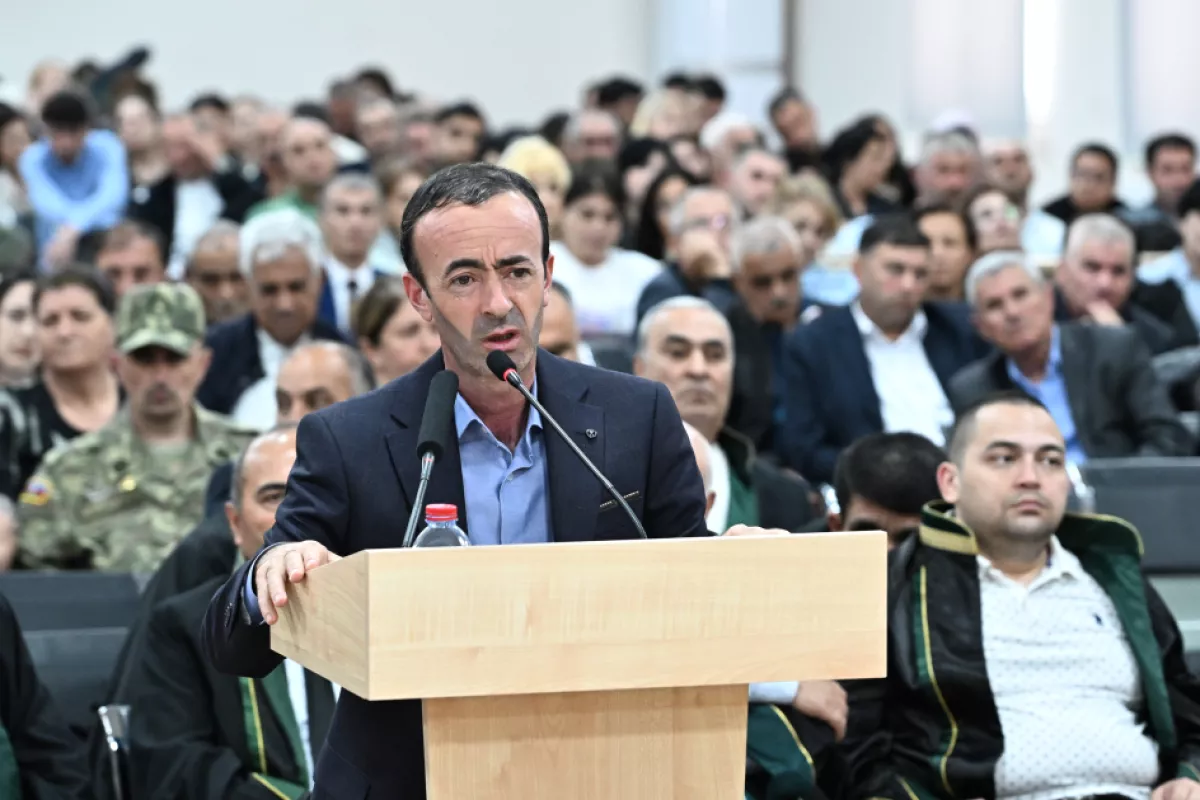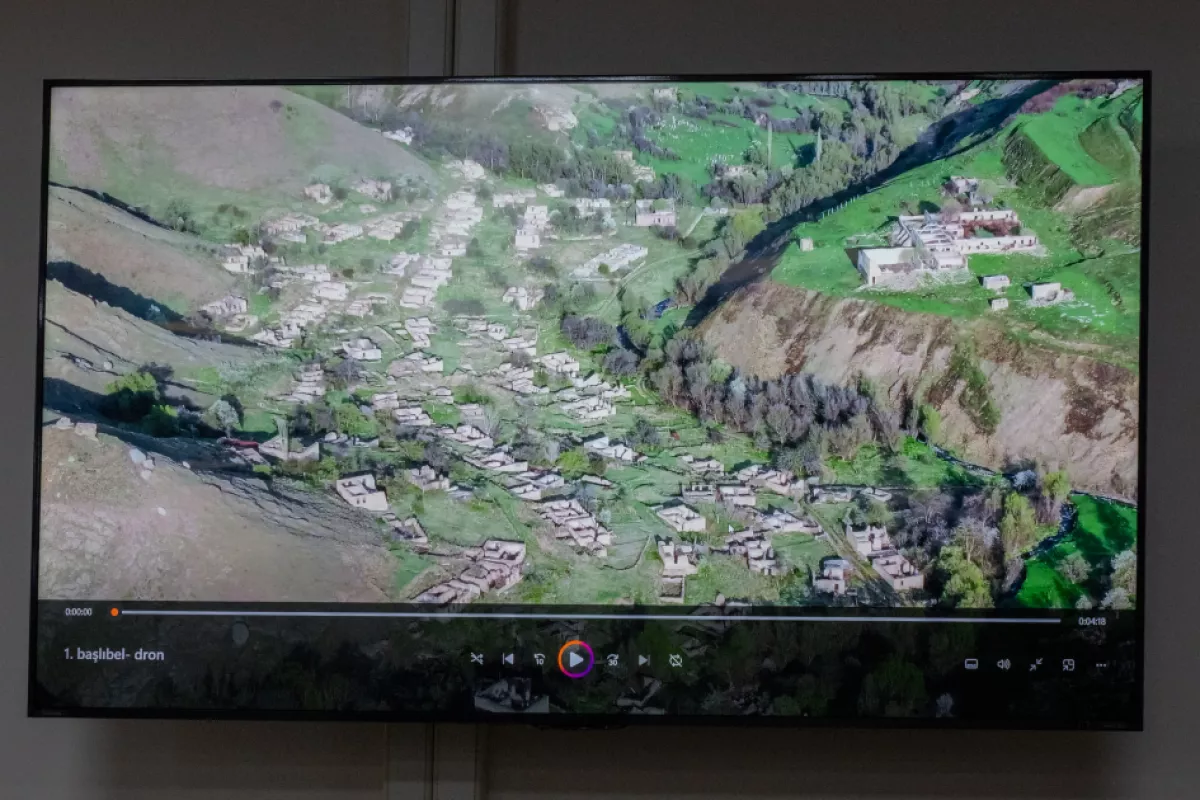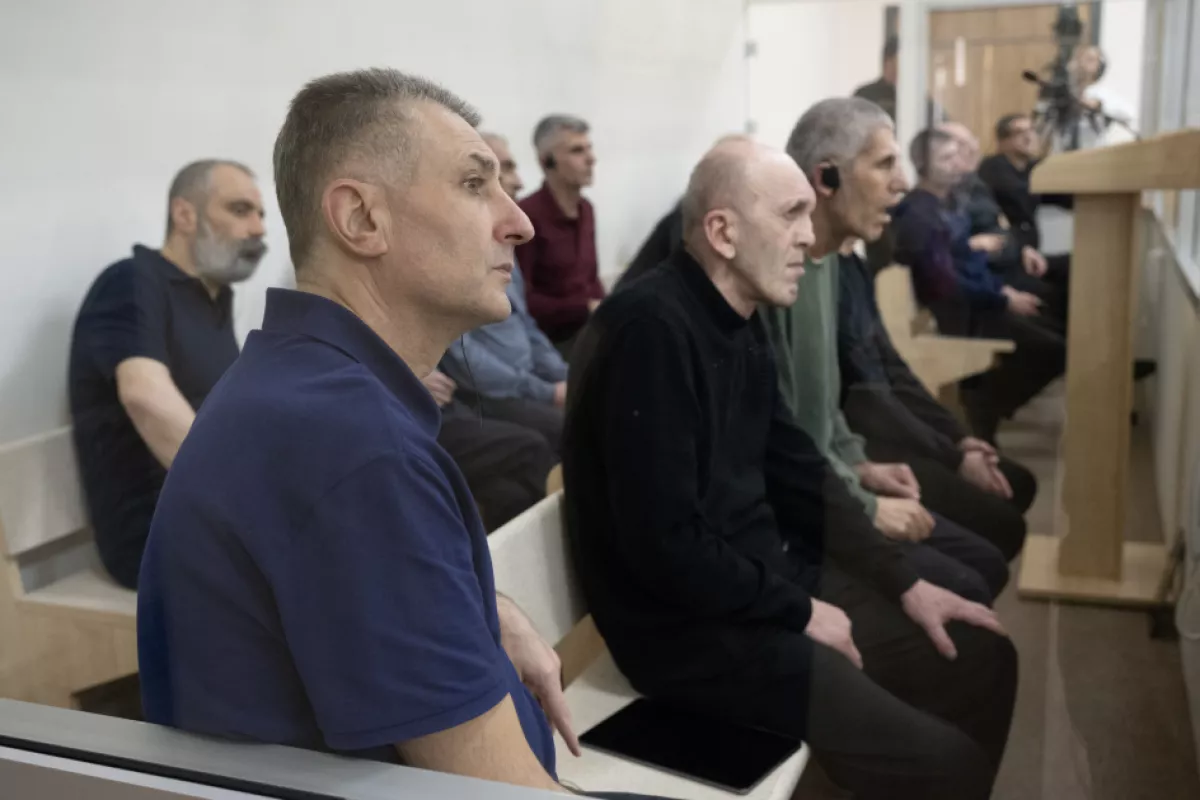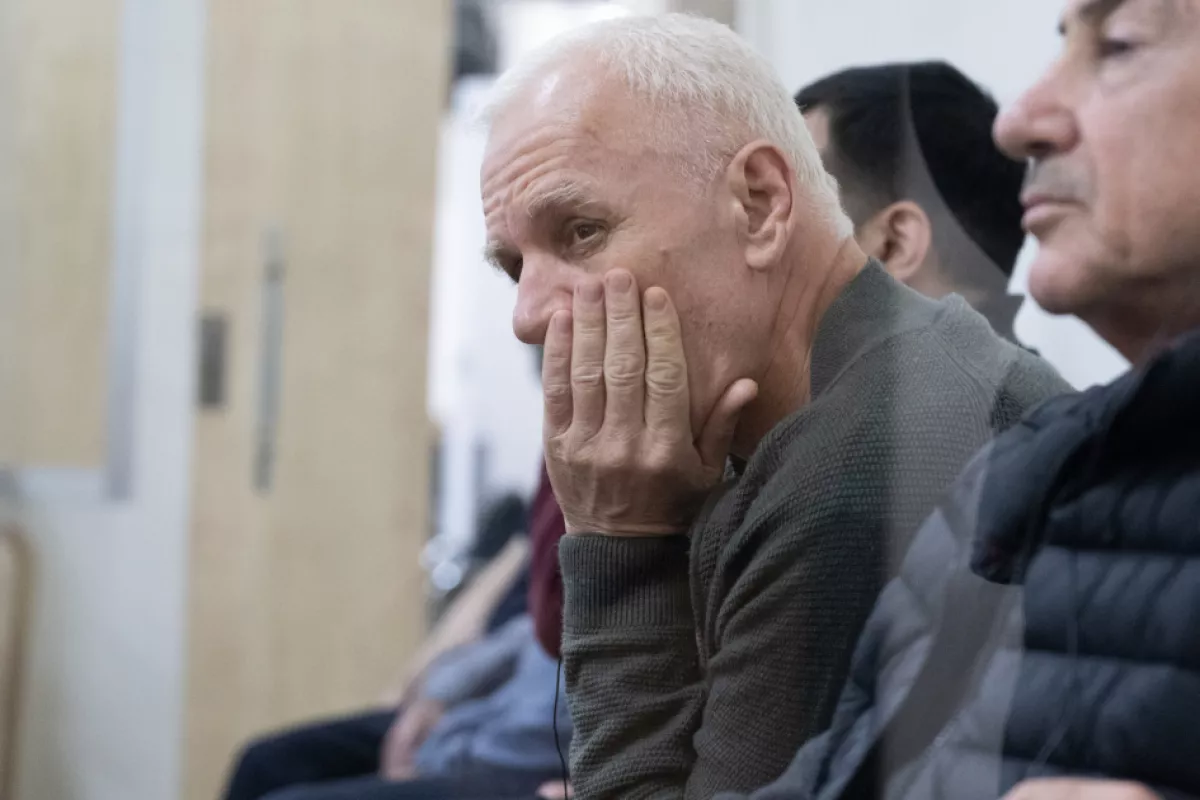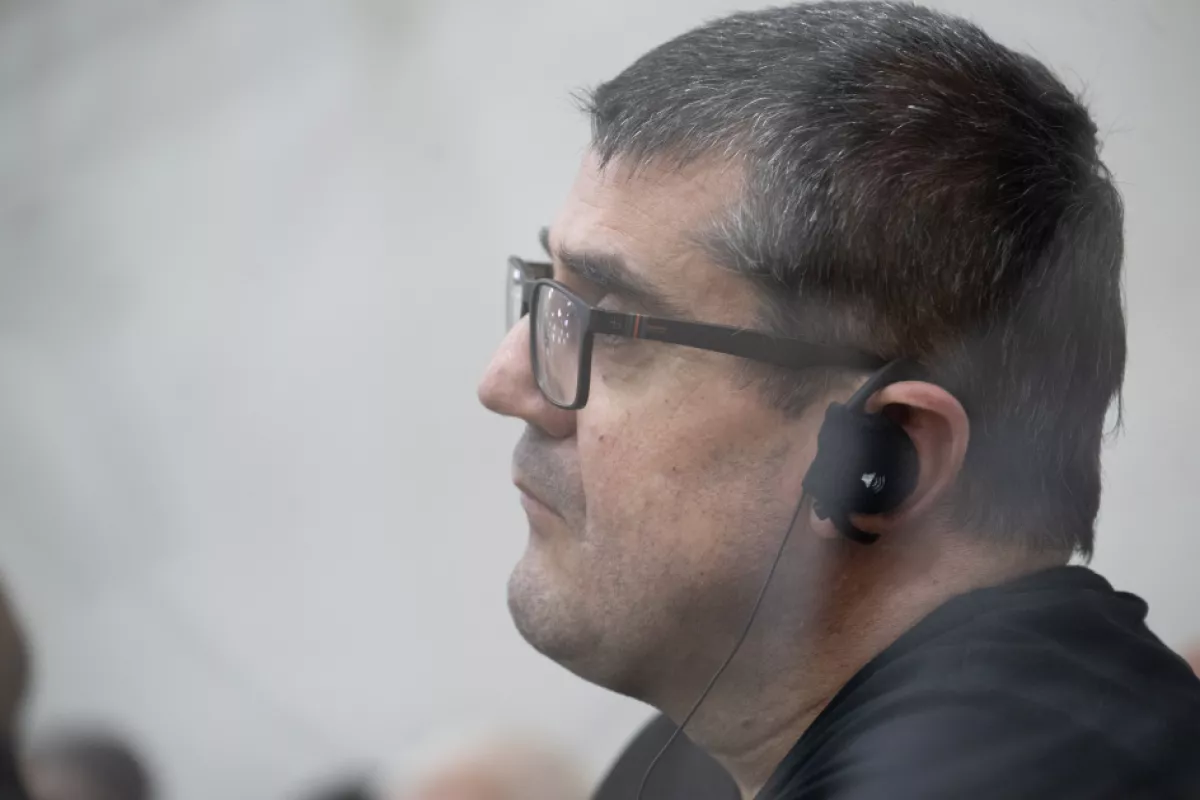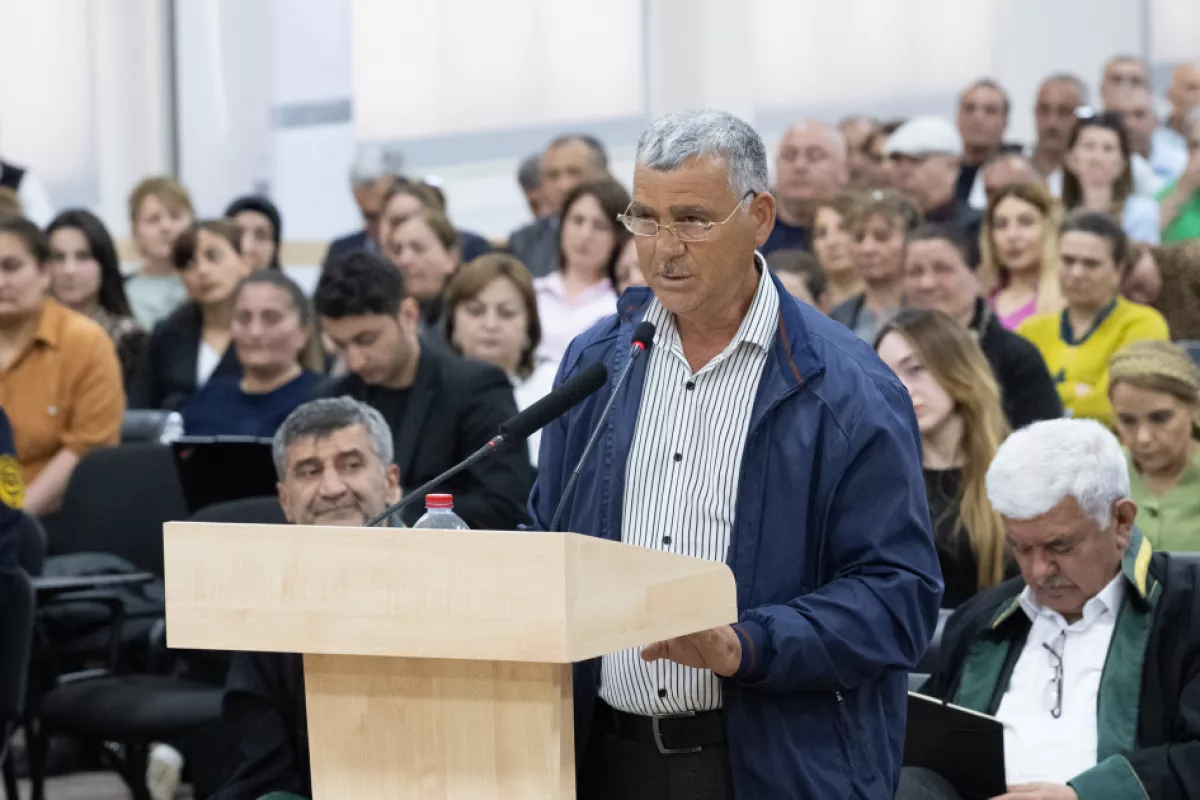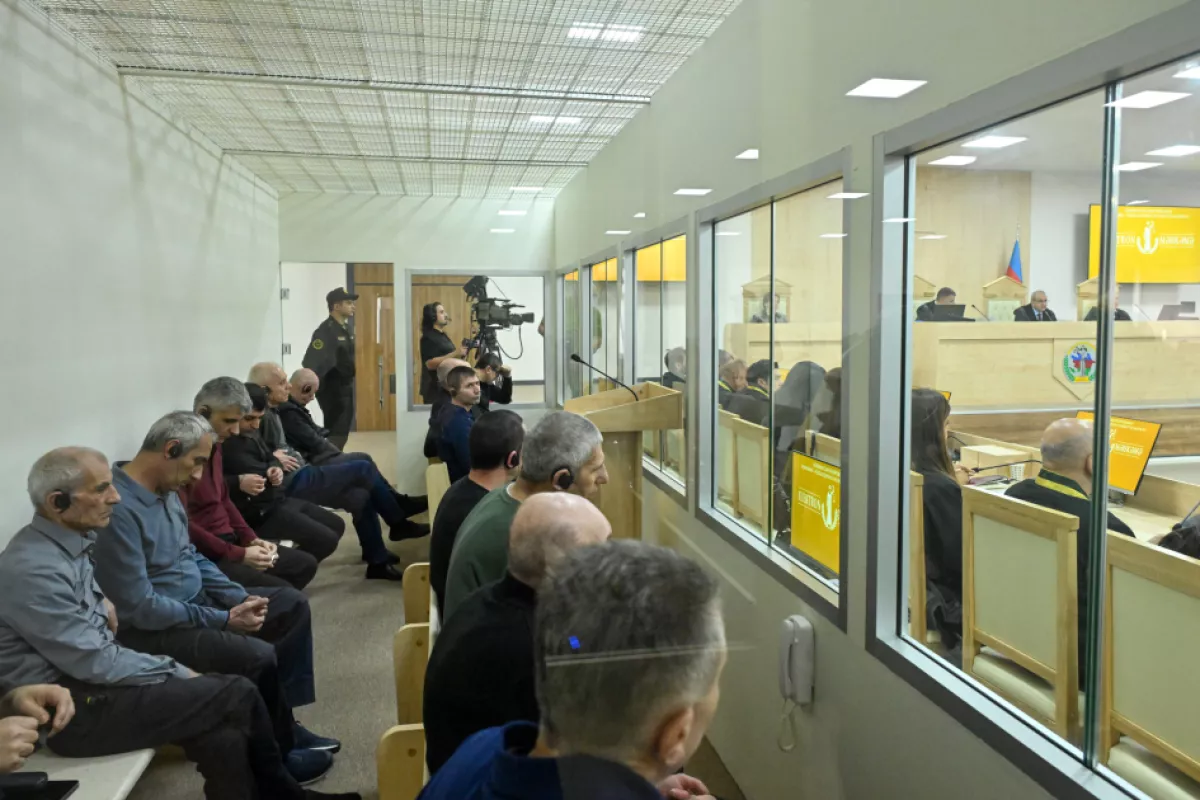Gruesome testimonies expose Armenian forces' atrocities against Azerbaijani civilians in Kalbajar Trial in Baku / PHOTO
On May 12, the public court hearing continued in Baku regarding the criminal cases against Armenian citizens — Arayik Harutyunyan, Arkadi Ghukasyan, Bako Sahakyan, Davit Ishkhanyan, Davit Babayan, Levon Mnatsakanyan, and others — who are accused of committing crimes against peace and humanity, war crimes including the planning and waging of aggressive war, genocide, violations of the laws and customs of war, as well as terrorism, financing of terrorism, violent seizure or retention of power, and numerous other offenses.
At the court hearing held at the Baku Military Court under the chairmanship of Judge Zeynal Aghayev, with Judges Jamal Ramazanov and Anar Rzayev (reserve judge – Gunel Samadova) on the panel, each of the defendants was provided with an interpreter fluent in their language, as well as defence attorneys, Caliber.Az reports, citing local media.
The court hearing was attended by the defendants, their defence attorneys, some of the victims, their legal successors and representatives, as well as prosecutors representing the state prosecution.
At the outset, Judge Zeynal Aghayev introduced the judicial panel, interpreters, and other relevant parties to the victims participating in the court proceedings for the first time, and explained their rights and obligations in line with the law.
In court, the victims testified about the destruction carried out by the Armenian armed forces in the Kalbajar district as part of that country’s occupation policy — including in the village of Bashlibel, in an area known as the "Tunnel," and in other parts of the district. They also spoke about the commission of especially grave crimes against civilians solely because they were Azerbaijanis.
Victim Elshad Alyshov stated in his testimony that after the occupation of Kalbajar, they were forced to leave Bashlibel, and at that time, he, along with his mother, sister, younger brother, cousins, and his uncle’s daughter-in-law, attempted to leave the district by car through the tunnel area.
When asked by Senior Assistant to the Prosecutor General Vusal Aliyev, the victim said that he had no weapon for self-defence. One of the bullets fired by the Armenian army during the incident struck his mother in the leg:
“They had surrounded the tunnel. As we were passing through, they opened fire on our car. As a result, my mother was wounded in the leg, and my sister sustained a through-and-through gunshot wound to the mouth. I carried my mother on my back for 300 meters. The car belonging to Yusif (our neighbour) was also fired upon. When I went to check his car, I left my mother and looked inside Yusif’s vehicle. But I couldn’t rescue her (my mother) or the others — only my brother. There’s still no news about their fate.”
Stating that they had set out on the journey together with their neighbour Yusif, the victim also noted that the vehicle they were in came under fire as well. He then said:
“Yusif was wounded about 50–60 meters from the car. His brother was killed, and his wife and niece were injured.”
Another victim, Elshad Azizov, testified that he sustained a gunshot wound to the arm as a result of the attack by Armenian armed forces on Bashlibel, during which 12 people were killed. He noted that the Armenian army looted the homes of village residents and stole their livestock.
He noted that after the attack by Armenian armed forces, Kalbajar was almost completely besieged, and the local population was forced to flee along the road toward Murov. Those who were unable to leave the district took shelter in mountain caves and remained in Kalbajar until July. The victim added that at the time of the village’s occupation, the Armenian armed forces did not allow civilians to leave.
According to Azizov, it was only after 113 days that they managed to reach the Dashkasan district through secret paths.
Answering a question from the head of the Department of the General Prosecutor's Office for State Prosecution Support, Nasir Bayramov, the victim stated that Armenia's territorial claims on Kalbajar began back in 1987–1988: “The Armenians put pressure on the Azerbaijanis to force them to leave their homes. Before the occupation of Kalbajar, various tragedies occurred in the area. Before the village of Bashlibel was captured, over 1,500 people lived there.”
Another victim, Gabil Alasgarov, testified that on April 5, gunshots began to be heard in Bashlibel.
"The soldiers who attacked the village were looting the houses. We hid in caves to protect ourselves. When they discovered our hiding place, they began firing on it. After they threw gas bombs inside, it became impossible to stay there. I went outside and told them that everyone inside had died, but they didn’t believe me. They demanded that I call the people hiding in the cave and bring them outside," Gabil Alasgarov emphasised.
The victim also added that as a result of the Armenian army's attack on the cave, his mother sustained a gunshot wound to the arm:
"When I went to get my mother, they shot her. There were many elderly people and women among us. The Armenian armed forces were killing civilians without any questions, as soon as they saw them. Among the attackers were also mercenaries from foreign countries. To avoid being captured, I ran, hoping that they would kill me. But I managed to escape. They burned an elderly man in the cultural house — only his head remained. They threw one woman into the water, and she froze to death because it was so cold. They ruthlessly killed animals as well."
Then, drone footage of the caves where the residents of Bashlibel had hidden, as well as the locations of the events, was shown in court. The victims identified the cave where they had taken shelter.
In reply to the prosecutor supporting the state prosecution about the directions of the Armenian army's offensive, Alasgarov answered that the attack was launched from the sides of Aghdaban and Basarkechar.
The victim, Tajira Alasgarova, testified that on April 18, she sustained a gunshot wound to her left arm during the tragic events in Bashlibel and spent eight days separated from her family.
To the question raised by the state prosecutor Vusal Abdullayev, the victim said that they spent 113 days in the caves in the cold, without food and water, enduring what she described as a true hell.
Adalat Abbasov, who testified in court as a witness, stated that in April 1993, while they were hiding in the caves, Armenian soldiers brutally killed the residents who had remained in the village.
"A resident named Guseyn was doused with flammable liquid and burned alive in the village's cultural house. We saw his remains when we secretly entered the village to get food," Abbasov recounted.
He added that on April 18, 1993, about 30 armed Armenian soldiers approached the caves where they were hiding and killed 10 residents of Bashlibel, one resident of the Lachin district named Ahliman, and his comrade Vugar Abdullayev.
When questioned by state prosecutor Fuad Musayev: "When did you go into the caves?" and "How many of you were there?" the victim answered: "We hid in the caves on April 5 and stayed there. There were 7-8 caves, with about 10 people in each."
The victim, Rustam Alasgarov, stated that he saw the body of a resident named Gyanayat by the side of the road. He emphasised that the units of the Armenian army subjected people to various forms of torture.
"All those killed by the Armenian soldiers were elderly, old people, children — in other words, exclusively civilians," he added.
Upon being questioned by the representatives of the victims, Alasgarov stated that there were also mercenaries from other countries among the attackers. "Some of the captured people were later exchanged. These individuals endured horrific torture while in captivity," he noted.
The victim, Ali Zeynalov, recounted that they fell into an ambush by the Armenian army in an area known as the "Tunnel," and as a result of the incident, he lost his relatives. According to him, the Armenian armed forces shot at the elderly, women, and children — sparing no one.
In reaction to Vusal Aliyev, Senior Assistant to the Prosecutor General, Zeynalov said that they were able to leave Kalbajar in two days via the road leading toward Murov.
The victim, Arif Suleymanov, who testified in court, stated that on April 1, he intended to cross Mount Murov on foot and head to Kalbajar to assist his family members who were trapped, but he was unable to do so because the area along the Tartar River was occupied by the Armenian armed forces.
He continued, "Therefore, in the village of Yanshag, we had to turn back. The day before, the Armenian army had shot down the last helicopter that left Kalbajar. The Armenian forces took positions in an area called the 'Tunnel' to set an ambush for the Azerbaijanis and were shooting at any vehicles trying to pass through the tunnel. As a result, people were forced to head toward Murov. However, travelling on this road in the freezing, snowy weather was very difficult. Since the overwhelming majority of the population leaving the village was elderly, they were unable to move forward."
The victim added that during the occupation of the village of Bashlybel, he lost his mother.
The next court session is scheduled for May 15.
A total of 15 Armenian nationals are being charged with numerous crimes involving direct leadership and participation of the Armenian state, its state bodies, military forces and illegal armed formations, verbal and written instructions, orders and assignments, provision of material and technical support, central governance, as well as the exercise of rigorous control, with the aim of committing military aggression and acts of terror against the Republic of Azerbaijan in the territory of Azerbaijan in violation of domestic and international law, and involving Robert Sedraki Kocharyan, Serzh Azati Sargsyan, Vazgen Mikaeli Manukyan, Vazgen Zaveni Sargsyan, Samvel Andraniki Babayan, Vitali Mikaeli Balasanyan, Zori Hayki Balayan, Seyran Mushegi Ohanyan, Arshavir Surenovich Garamyan, Monte Charles Melkonian and others, including criminal acts committed during the course of the war of aggression waged by the aforementioned criminal group.
The individuals listed—Arayik Vladimiri Harutyunyan, Arkadi Arshaviri Ghukasyan, Bako Sahaki Sahakyan, Davit Rubeni Ishkhanyan, David Azatini Manukyan, Davit Klimi Babayan, Levon Henrikovich Mnatsakanyan, Vasili Ivani Beglaryan, Erik Roberti Ghazaryan, Davit Nelsoni Allahverdiyan, Gurgen Homeri Stepanyan, Levon Romiki Balayan, Madat Arakelovich Babayan, Garik Grigori Martirosyan, Melikset Vladimiri Pashayan—are charged with a range of crimes including planning and waging war of aggression, genocide, extermination, enslavement, deportation, persecution, enforced disappearance, unlawful detention, torture, mercenary service, violations of warfare laws and international humanitarian law, military robbery, intentional murder, illegal entrepreneurship, terrorism, financing terrorism, creating criminal organizations, illegal possession and trafficking of weapons, threatening aviation security, assassination of state officials, forcible seizure of power, and the creation of illegal armed groups, among others under the Criminal Code of the Republic of Azerbaijan.
By Khagan Isayev




